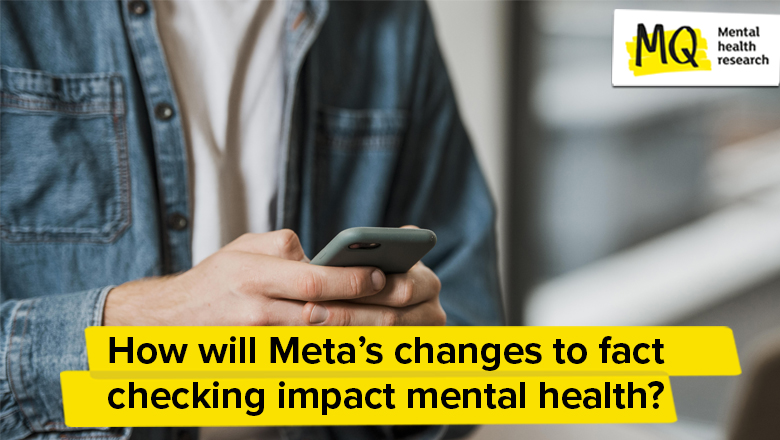
Peer workers are people with lived and living experience of mental health challenges who use these experiences as a discipline lens for their work. Peer workers are now seen as an integral part of the mental health workforce in many high-income countries. One of the main professional tasks that many peer workers engage in is their participation in peer support with clients attending mental health services.
The development and implementation of peer support interventions in mental health contexts has rapidly grown in recent decades. The volume of research in the area has also grown, and there are now many narrative, scoping, and systematic reviews. Ruth Cooper and colleagues (2024) undertook a systematic umbrella review, which is a considerable piece of work that summarises existing reviews of the literature. In their review, they sought to address three research questions:
- “What is the effectiveness (e.g., clinical, social, functional) and cost-effectiveness of paid peer support approaches for mental health?”;
- “What influences the implementation of peer support approaches for mental health?”; and
- “What are the experiences of peer support approaches for mental health (e.g., acceptability) from the perspective of peer support workers, healthcare practitioners, service users, carers?”
Before we describe the approach to the review and what was found, we wanted to highlight several issues to consider when reviewing literature on peer support. In this blog post, we use the term ‘peer worker’ to mean a person employed to engage in peer support with peers, and the term ‘peer support’ to refer to the activities and relationship that the peer worker and peer engage in. We acknowledge that this is aspirational language, as the field suffers considerably from inconsistent use of terms. For example, a peer support programme developed by people with lived experience trained in an established model of peer support (e.g., Intentional Peer Support) and a psychoeducation intervention developed by psychologists and delivered by paid peer workers might both be called peer support, but the nature of these two experiences is likely to be quite different. Historically, researchers (including Magenta, one of the co-authors of this blog!) have not done a great job of describing in detail the development and implementation of peer support interventions and peer work roles, which is why undertaking reviews in this area is challenging (King and Simmons, 2018).
Undertaking a randomised or controlled trial to test the effectiveness of peer support, or undertaking a review of these types of trials, is also complicated given that the underlying principles of peer support are not predicated on a ‘deficit model’. This is at odd with the goal of testing effectiveness, which is all about seeing what works to fix a problem (Gillard, 2019). Peer workers don’t focus on ‘mental illness’ as being something ‘wrong’ with a person, but rather they focus on a person’s strengths and conceptualise distress and mental health challenges as a person coping with factors such as experiences of trauma, poverty, and other forms of social exclusion.
When considering peer support in the context of mental health, it’s also important to acknowledge the broad range of experiences that encompasses. Not only in terms of the types of challenges experienced (e.g., what might be called anxiety, depression, psychosis) but also in terms of severity. The degree to which peer support might result in positive outcomes when it comes to mental health challenges (i.e., symptoms or clinical outcomes) is likely to depend on the types of challenges faced by peers. This isn’t to say that peer support won’t improve outcomes for people who experience different challenges, but it does raise the question about what outcomes should be measured in studies on peer support. It’s also important to think about who decides on what the right outcomes are, as what people with lived experience prioritise is likely to be different to what clinicians and non-lived experience researchers think is important. In a review of youth peer support interventions, for example, we found very little evidence of the involvement of people with lived experience in the design of either peer support interventions of research testing the effectiveness of these interventions (Simmons et al.).

The implementation of peer support interventions in the mental health field consistently grows, but how effective are they?
Methods
To undertake this review, the authors worked together with a lived experience working group across each stage (Cooper et al, 2024). Other markers that demonstrate the quality of this review include the registration of the protocol, the use of standardised reporting guidelines, and a high-quality methodological approach, including formal quality appraisals of the reviews, and the use of a framework (Consolidated Framework for Implementation Research) to report and interpret the findings relating to implementation factors. Along with the large yet useful tables in the manuscript itself, there is a treasure trove of information in the supplementary files, including more detailed descriptions of the themes relating to the experiences of peer workers (file 7).
Systematic, scoping, or realist reviews were included if they were published in a peer reviewed journal and reported on an outcome relating to the aims described above. Within the reviews, at least half of the included studies had to be interventions delivered by paid peer workers or family peer workers (people not bots or AI) for service users and caregivers of any age in a mental health setting.
Undertaking an umbrella review requires researchers to make a series of decisions about what to include or disregard. Some of these decisions are reasonably straightforward, for example this umbrella review included quantitative reviews only if a quality appraisal was done as part of the original review. Other decisions are more nuanced and should be considered in relation to other options that could have been taken.
As seen in the aims above, a choice was made to focus on peer support interventions delivered by paid peer workers. This was done because the authors hoped this would act as a proxy for better trained and supported peer workers. When undertaking an umbrella review, you can’t change what has happened either in the original research studies or in the reviews of such studies (because the researchers conducting these works have made their own choices and these can sometimes make it difficult to impose your inclusion and exclusion criteria). This means that you need to make ‘best bet’, sometimes arbitrary decisions about where to draw the line.
As mentioned above, reviews were included if at least 50% of the included studies were interventions provided by paid peer workers. This focus on paid peer workers is in lieu of other choices; for example, they could have chosen to only include interventions that detailed what the peer support intervention was, how it aligned with the principles of peer support, clearly described the deliberate use of a lived experience lens or discipline, or other things that would indicate a higher quality or more meaningful intervention. However, being familiar with the literature, we acknowledge it would have been difficult to find individual studies, let alone reviews, that met these types of criteria. This highlights the need to balance meaning (i.e., what would the ideal review tell us) with pragmatic considerations. Researchers can only review work that has been done, and in the area of peer support, reviews can highlight key work that is yet to be done.
The inclusion of family peer support interventions amongst consumer peer support combines different approaches, due to the differing types of support provided by the two roles. In the Australian context, family peer workers provide support to parents and carers of individuals experiencing mental health challenges, and their support largely focuses on topics such as self-care, empowerment, how to navigate the system for their loved one, and how to support themselves while supporting someone else (Hopkins et al 2021). Whilst there is some overlap with consumer peer support, there can be a large disparity in comparison to their consumer counterparts, and more information about how this was managed would have been helpful.
Results
In total, 35 reviews were included representing 426 individual studies, 300 of which were included in only one review, and 91 that were included in more than one included review. There were 13 systematic reviews with no pooling of data; 13 systematic reviews with quantitative pooling of data (meta-analysis); 6 systematic reviews with qualitative pooling of data (meta-synthesis); and 6 scoping reviews. All but one of the reviews (which was rated as high quality) were rated as either low or critically low quality.
Effectiveness
In terms of the effectiveness of peer support, 23 reviews addressed this research question and showed mixed results, both in terms of the types of outcomes that were measured in studies and the level of evidence for effectiveness. The outcomes that showed at least some positive effect included symptoms of depression, self-efficacy (the belief you have in yourself that you can achieve your own goals), and recovery.
Implementation barriers and enablers
When it came to the factors that helped or hindered the implementation of peer support, 9 reviews addressed this research question. The things that helped included proper training and supervision for peer workers, working in a recovery-oriented environment, having strong and supportive leaders, and “a supportive and trusting workplace culture with effective collaboration” (p39). The things that made it difficult to implement peer support included a lack of time, resources and funding, and a lack of recognised accredited courses for peer workers to undertake.
Experiences
11 reviews were used to answer the research question about the experiences of key stakeholders, including peer workers. Three themes were identified, including the way in which peer support improves recovery for both the peer worker and the peer they engage with; role confusion (e.g., role ambiguity, boundaries); and ‘organisational challenges and impact’, which referred to working conditions such as low pay, professional stigma, and the lack of support and training (as identified as an implementation barrier above).

This review suggests that peer support may help with symptoms of depression, increased self-efficacy and recovery, but the quality of the included evidence is mostly low.
Conclusions
Academic literature has consistently explored the barriers to effective implementation of peer support within services, such as role confusion among both peer and non-peer staff, and professional stigma towards peer staff, yet there is a lack of acknowledgement on how to address these. Particularly, these are evident and more difficult to address in largely clinical settings such as tertiary level care, or acute settings such as inpatient psychiatric wards where the medical model is largely and predominantly used. This can create more barriers upon implementing peer workers within these settings, due to their peer support focusing on more holistic approaches to recovery such as self-determination, self-advocacy, effective communication. Yet, there is a lack of research of facilitators in the integration of the peer workforce.
This umbrella review highlights the need for clear role descriptions and guidelines, adequate pay, ongoing supervision and training, and opportunities for career progression. However, how can this be implemented into the integration process? We need more research on how to successfully implement peer support, including effective allyship strategies (Reeves et al 2024), and these studies would be arguably more useful than randomised trials testing effectiveness of outcomes that peer support may not be aiming to improve. There is merit in providing people accessing mental health services the types of help that they value and find meaning in. There is also merit in making sure that the interventions we are testing or evaluating are delivered by well-supported peer workers.

This peer support review highlights the need for clear role descriptions, adequate pay, ongoing supervision and training, and opportunities for career progression.
Strengths and limitations
+ High quality methodologies used, with appropriate registering and reporting etc.
+ The team undertaking the umbrella review included lived experience involvement (including lived experience of being a peer worker and a peer).
– The nature of the peer support field means that studies are largely heterogeneous in terms of the intervention and training, population, outcomes measured etc., which makes umbrella reviews difficult.
– Focus on effectiveness is at odds with theoretical underpinnings of peer support. Peer workers don’t aim to improve clinical outcomes.

Peer workers don’t aim to improve clinical outcomes, so why are we measuring peer support with these criteria?
Implications for practice
As the authors describe, attitudes held by non-peer staff, staff acceptability, culture, and hierarchal structures can all impede on the embedment of peer workers within a service, thus creating a negative impact on the usefulness of peer support. When peer workers are unable to enact their role properly, the foundations of values and principles within peer support practices can be undermined and any studies measuring the effectiveness of peer support for any outcome may be decreased. Such conflicts might include tension relating to perceived lack of boundaries between peer workers and peers from non-peer staff, resulting in peer workers unable to be mutually vulnerable, gain trust, or build rapport with a peer, leading to dilution of the intervention through phenomenon such as ‘peer drift’.
Peer workers need effective training and dedicated lived experience supervision to maintain their discipline lens and address workplace barriers to their work. Ideally, peer workers should be working in environments where peer support is championed by the organisation and colleagues aspire to allyship. Colleagues should be provided with allyship training, and they should have access to senior peer workers or senior lived and living experience workforce roles, who can also support the supervision, mentoring, and career development of peer workers.
Finally, family peer work is a wonderful aspect of any modern mental health system and deserves its own area of research to ensure that the unique needs of biological, assigned, and chosen families are met. Combining family peer support and consumer peer support does neither group justice, and too often research on the needs of families (not just in relation to family peer support) is lacking.

Working environments need to champion the inclusion of peer workers and lived experience experts whilst providing appropriate supervision and mentoring.
Statement of interests
A/Prof Simmons has undertaken research on peer support and has previously been awarded a contract to undertake a systematic review on peer support.
Belle is a youth peer worker and lived experience expert.
Links
Primary paper
Cooper, R. E., Saunders, K. R. K., Greenburgh, A., Shah, P., Appleton, R., Machin, K., Jeynes, T., Barnett, P., Allan, S. M., Griffiths, J., Stuart, R., Mitchell, L., Chipp, B., Jeffreys, S., Lloyd-Evans, B., Simpson, A., & Johnson, S. (2024). The effectiveness, implementation, and experiences of peer support approaches for mental health: A systematic umbrella review. BMC Medicine, 22(1), 72. https://doi.org/10.1186/s12916-024-03260-y
Other references
Gillard S. Peer support in mental health services: where is the research taking us, and do we want to go there? J Ment Health. 2019 Aug;28(4):341-344. https://doi.org/10.1080/09638237.2019.1608935
King AJ, Simmons MB. A systematic review of the attributes and outcomes of peer work and guidelines for reporting studies of peer interventions. Psychiatric Services. 2018;69(9):961-77. https://doi.org/10.1176/appi.ps.201700564
Hopkins, L., Kuklych, J., Pedwell, G. et al. Supporting the Support Network: The Value of Family Peer Work in Youth Mental Health Care. Community Ment Health J 57, 926–936 (2021). https://doi.org/10.1007/s10597-020-00687-4
Reeves, V., Loughhead, M., Teague, C., Halpin, M. A., & Procter, N. (2024). Lived experience allyship in mental health services: Recommendations for improved uptake of allyship roles in support of peer workforces. International Journal of Mental Health Nursing, 33(5), 1591–1601. https://doi.org/10.1111/inm.13322
Simmons, M.B., Cartner, S., MacDonald, R. et al. The effectiveness of peer support from a person with lived experience of mental health challenges for young people with anxiety and depression: a systematic review. BMC Psychiatry 23, 194 (2023). https://doi.org/10.1186/s12888-023-04578-2


